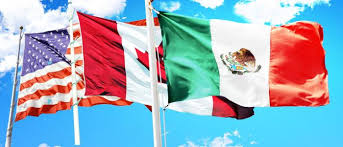
On May 30, the U.S. Trade Representative (USTR) took a step forward in its efforts to obtain Congress's approval of the U.S.-Mexico-Canada Agreement (USMCA), with its submission of a draft Statement of Administrative Action (SAA) to congressional leaders. This post considers the changes in U.S. procurement law and the administrative actions that will be needed to implement the USMCA’s procurement chapter. The procurement-related actions will be modest since the new agreement’s provisions are very similar to those in the North American Free Trade Agreement (NAFTA), with the major exception of the omission of Canada.
USTR made the submission to comply with Trade Promotion Authority (TPA), the legislative measure that allows for an “up or down” vote by Congress on the USMCA, if the administration meets certain transparency and consultation requirements. The SAA “represents an authoritative expression by the Administration . . . regarding the interpretation and application of the Agreement, both for purposes of U.S. international obligations and domestic law.”
In the draft Statement, USTR characterized the USMCA as “a comprehensive overhaul of the NAFTA” while recognizing that its replication of many NAFTA provisions means that U.S. obligations remain essentially the same. This includes government procurement, as described in an earlier post. A minor change is the U.S. removal of the procurement of uniforms and clothing by the Transportation Security Administration (TSA) from its coverage obligations. A major difference between the two agreements is that the USMCA's procurement chapter does not apply to Canada.
The draft SAA notes that the U.S. will continue to have procurement obligations with respect to Canada under the WTO Government Procurement Agreement (GPA). It then adds that the U.S. “will have national treatment and most-favored-nation obligations with respect to the purchase or acquisition of financial services by public entities in the United States under the [General Agreement on Trade in Services], as set out in the U.S. Schedule of Commitments and the Understanding on Commitments in Financial Services.” The purpose of this statement is unclear.
USTR elaborates on the changes in law necessary to implement the USMCA’s procurement chapter, which it had outlined in a January submission to Congress. The Trade Agreements Act of 1979, as amended, (TAA) would need to be revised “to permit the President to designate products from Mexico as eligible for purposes of waiving discriminatory purchasing requirements under our government procurement law.” In practice, this waiver only applies to the Buy American Act of 1933 and the Department of Defense’s Balance of Payment program. The amendments of the TAA would replace NAFTA with the USMCA, including in the definition of “eligible product”.
With regard to administrative actions necessary to implement the USMCA, USTR will notify the Federal Acquisition Regulatory Council (FAR Council) of the USMCA’s entry into force and the thresholds that apply to Mexico under the Agreement. The FAR Council will then make necessary changes in the Federal Acquisition Regulation (FAR): it will need to remove Canada from the list of Free Trade Agreement countries, remove references to NAFTA, and add the USMCA to the list of Free Trade Agreements. (Canada would remain on the list of GPA countries.)
In addition, the Department of Homeland Security will need to change its acquisition regulation to remove obligations on TSA with respect to the purchase of uniforms and clothing from Mexico.
USTR also draws attention in the draft Statement to labor and environmental provisions in the procurement chapter. They allow procuring entities to require compliance with laws in the territory where the good is produced or a service is performed. Entities may also promote the conservation of natural resources or protect the environment in its technical specifications. The Statement adds that the procurement chapter will not “affect application of the Davis-Bacon Act and related Acts,” which require contractors to pay locally prevailing wages on public works projects that receive federal funding.
The draft SAA identifies several areas where the administration will continue consultations with Congress to determine whether amendments to current laws or new authorities are necessary to implement the USMCA. They include provisions relating to trade facilitation, cross-border trade in services, pharmaceutical-related provisions in the intellectual property rights chapter, Mexico’s obligations to implement certain labor reforms and the environment chapter.
When USTR completes its consultations with Congress and addresses outstanding issues, it will be required to submit a final SAA and implementing legislation. Congress will approve the final SAA when it approves the USMCA implementing legislation.
Jean Heilman Grier
June 17, 2019
Related Posts
Trade Agreements Act of 1979: Broad Authority, Narrow Application

